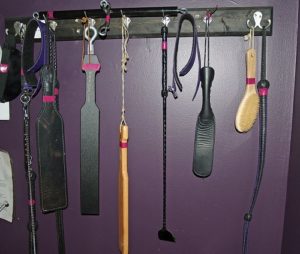Contact Us
By email:
info@one-place-studies.org
By post:
Society for One-Place Studies,
28 St Ronan’s Avenue,
Southsea, Hampshire, PO4 0QE
United Kingdom

It's April so it's time for our members to help us blog through the 2020 A-Z Blogging Challenge. Our chosen theme this year is Employment, also the topic of our Shared Endeavour where our members are encouraged to research employment within their one-place study. Today's entry is from Steve Jackson.
Waters Upton, a small village in rural Shropshire and the subject of my one-place study, has rarely been the centre of media attention. In April 2010 however, Waters Upton hit the headlines in newspapers and their websites across the UK – all because of the occupation of a parishioner who had hired the village hall to ply her trade.

The village hall was originally built and opened in 1874 as a Church of England schoolhouse by the Rector, John Bayley Davies. It became the village reading room after the school closed (between 1916 and 1919), and later took on its present function. It is run by a registered charity (number 513630), the activities of which are described as being: “To manage a building for holding communal activities and for hire to local residents of the civil parish of Waters Upton and groups operating therein.”
One website carrying details of the village hall describes it as being “both figuratively and literally at the heart of the village [which] has been the site of interesting goings-on for nearly a century!” In recent years those ‘interesting goings on’ have mainly been meetings of local clubs, including the Chestnut Club (for local seniors), the Waters Upton Art Club, a Bridge Club and Whist Drive, and Fitsteps (for ‘keep fit’ enthusiasts). Appletrees Nursery, a childminding service for local parents, has also operated there.
As we have seen, the phrase ‘interesting goings on’ took on a whole new meaning in 2010 (details, including the name of the young lady at the heart of this story, can be found online, but here I shall refer to the protagonist only as ‘Miss A’). The Shropshire Star broke the news on April 10th, under the headline “Hall used for sexy shoots”. The paper reported that “’professional’ dominatrix […] Mistress Tia, alias Telford woman [Miss A], 27, invited ‘slaves’ to Waters Upton Village Hall, near Wellington, to film kinky scenes for her website, which members pay £20 a month to access.”

Naturally this story was quickly picked up by other newspapers, which devised a variety of headlines including “They Don’t Like It Upton” (the Daily Mirror) and “Whip Round for the Village Hall” (the Scottish Daily Record). The services offered by Miss A were described as including “boot worship, bondage, caning, verbal abuse, flogging, waxing and whipping.”
When questioned by reporters, Miss A said that she was running a business and had done nothing wrong. She noted that she used the village hall because she was local (at the time she was living within the modern-day boundaries of the civil parish of Waters Upton) and it was a “good space”. On her website she described the hall as “a really big place with nice wooden floors which really accentuate the sound of my heels.” At least one newspaper reported that Miss A was filmed there “whipping male ‘sex slaves’ and using them as ashtrays and furniture […]”.
All very Personal Services, and very much not the kind of occupation I am used to finding in the parish registers, census returns and trade directories for the parish! Of course, times have changed since the era covered by my one-place study – but equally, sex work of various kinds, while often carried out clandestinely, has always been around. Those interested in learning more about the subjects of sex, sexuality and sex workers in both historical and contemporary contexts will find the Whores of Yore website a fascinating resource.
Reaction within the community of Waters Upton to the news of what had been going on in their midst was mixed. Some villagers told reporters that they were “disgusted” or “shocked”, or that it was “distasteful” that the village hall had been used in such a way. Others took a more relaxed view, including a pensioner who was quoted as saying “I am 81-years-old so it does not bother me. If they want to do it, let them do it.” The down-to-earth take of another villager was: “There is obviously an outlet for it otherwise she would not be making so much money. There is a need. If not here then where?”

That became a question for Miss A herself to answer, as her ‘village occupation’ – at least within the settlement of Waters Upton itself – was very short-lived. She had used the village hall for five Saturday ‘photoshoots’, but once the nature of those photoshoots became known to the hall’s management committee no more such bookings were permitted.